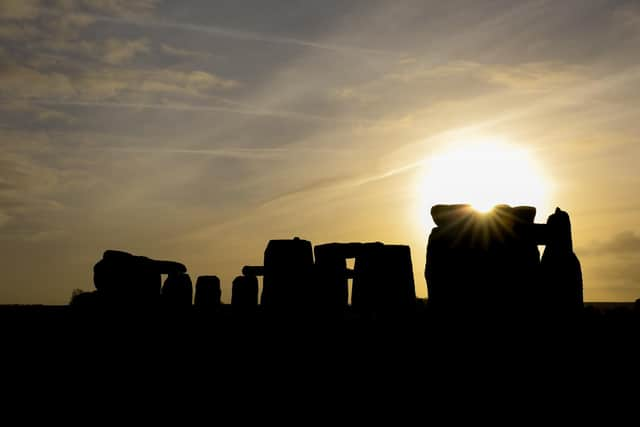Winter Solstice 2021: Why is today the shortest day of the year, what does it symbolise and when do the clocks go forward in 2022?
and live on Freeview channel 276
The winter solstice has been known for centuries for being a significant time of year for many different people.
There are two points in the year when a solstice occur; once in the northern hemisphere and then in the southern hemisphere.
These are known as the winter and summer solstice.


Advertisement
Hide AdAdvertisement
Hide AdHere is everything you need to know about this year’s winter solstice:
What is the winter solstice?
The winter solstice is also known as the hibernal or hiemal solstice and occurs when the North Pole reaches its maximum tilt away from the sun.
The event is marked as the symbolic death and rebirth of the sun.
Astronomical events, like the solstice, were often used to guide animals for mating season and to guide people for the sowing of crops and the monitoring of winter reserves of food.
Advertisement
Hide AdAdvertisement
Hide AdThe solstice was crucial to many people as they were economically reliant on the event as they used it to monitor the development of the seasons.
Ancient Romans celebrated the winter solstice with a festival called Saturnalia.
The festival ran for seven days from the 17th of December and male attendees would dress as women and masters dressed as servants.
Indigenous people celebrate the winter solstice with storytelling and a ceremony.
Advertisement
Hide AdAdvertisement
Hide AdCultures such as Paganism will see followers travel to Stonehenge in Wiltshire to celebrate winter solstice as they pay their tributes to the sun.
When is the winter solstice this year?
The winter solstice will take place on December 21 this year, at around 3.59pm.
This day will have the shortest period of daylight which will make it the shortest day of 2021.
During this day, the northern hemisphere will see around 8 hours and 46 minutes of daylight whilst the North Pole will remain in the dark.
Advertisement
Hide AdAdvertisement
Hide AdWhen do the clocks go forward in 2022?
The clocks are set to go forward on Sunday, March 27, 2022.
This will mean that we lose one hour of sleep as we move from Greenwich Mean Time (GMT) to British Summer Time (BST).
We will gain this hour back when the clocks go back on Sunday, October 30 at 2am.
When is summer solstice?
After the winter solstice has concluded, the days continuously get longer until the summer solstice on Tuesday, June 21 2022.
Advertisement
Hide AdAdvertisement
Hide AdThis date will be the longest day of the year and the summer solstice is when the earth is tilted closest to the sun, creating the opposite of the winter solstice.

